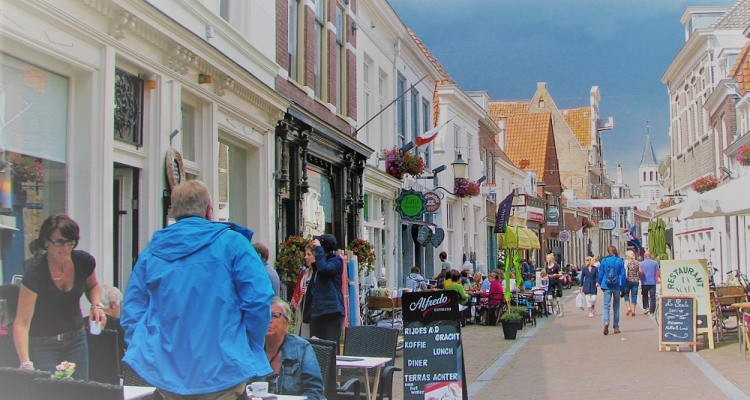
Project
Tipping the Balance in Dietary Change
Current food environments are characterised by a wide availability of unhealthy and highly processed foods, promoting unhealthy and unsustainable dietary patterns. The interdisciplinary Tipping the Balance program aims to contribute to the acceleration of a shift towards more plant-based diets through co-creating healthier and more sustainable food environments in living lab settings and through unravelling the complex behavioural aftereffects of changes in such environments on a spatial, intra-individual, and emotional level. The project is financially supported by NWO.
The food environment
Changes in the food environment have been proposed to foster a transition in dietary patterns. However, the interplay between changes in the food environment and responses to such system changes is currently not well understood. Changing one element in the food environment may affect other environmental features. For instance, a school may adopt a healthy school canteen approach, but success may be impeded if a snack food truck will be positioned in front of the school. Similarly, changes in food environments may affect decisions in that setting, but may be counteracted by other individual decisions.
Introducing meat-free days at the workplace, for instance, may cause people to eat extra meat at home. Such neutralizing effects may also be at play at a group level where consumption shifts in one group coincide with opposing shifts in other groups. Vegan consumption seems to spread rapidly in one network while other groups increasingly express their attachment to meat, making plant-based diets a contentious, emotionally charged societal subject. This program will produce a better understanding of these behavioural aftereffects rather than isolating factors from the complex environment in which food choices are made.
We seek to focus on these crucial lacunas for addressing food transitions, by
- innovating strategies for cocreating healthy and sustainable food environments,
- building novel insights in behavioural (after) effects of these strategies on healthy and sustainable food consumption,
- developing a better understanding of resistance and potential backlash against transitioning to plant-based consumption and healthier food environments, and
- advance creative data modelling techniques for analysing different scenarios of shifting diets.
More information
The research will be conducted by three PhD candidates and one postdoc. More information and contact details on the subprojects can be found on the personal pages of the PhD candidates. The fourth project will start in 2022.
1: Ward van Hoeven
The aim of work package 1 is to explore innovating strategies for cocreating healthy and sustainable food environments on a neighbourhood level. Here, the challenge not only lies in designing interventions that change behaviour, but also in interventions that are acceptable for local stakeholders such as food retailers and municipalities. Yet, the food environment is shaped by a complex system: each actors has their own drivers and capabilities to (not) change their food environment. To ensure that the capabilities, opportunities and motivations of all stakeholders are taken into account, we will engage them in a cocreative process to develop effective interventions, while we also generate ownership of locally feasible change. The cocreation method is inspired by elements from a systems approach and will be iteratively developed and evaluated. Finally, the interventions in the food environment will be evaluated on a spatial level.
2: Lotte de Lint
The aim of work package 2 is to develop a better understanding of the interdependencies between food consumption decisions and the underlying psychological processes. Food consumption decisions are often investigated in isolation, while the majority of our decisions are related to past experiences with food. This project focusses on how an initial decision influences subsequent decisions over a prolonged period and across settings. We aim to identify how an initial decision may set subsequent food decisions into motion resulting in a dietary shift, while we also explore decisions that cause adverse aftereffects. For instance, a vegetarian lunch at the workplace might trigger people to consume more vegetables at home, but could also be used as a justification to opt for a steak in a restaurant. These insights will be used to design and evaluate interventions in the food environment that have the largest potential to bring about a dietary shift.
3: Yolie Michielsen
The aim of work package 3 is to develop a better understanding of resistance against transitioning to more plant-based consumption. Group dynamics are often overlooked when studying response to changes in the food environment and foodways. Therefore, this project focuses on dynamics between and within groups in social processes that are part of transitioning to plant-based consumption. For instance, it gives insights into the dynamics within a loosely connected group of social media users responding to Meat Curtailment Policies, and shows how such a group engages in similar discourse that perpetuates various socio-political ideological notions, such as a governmental body obstructing the free choice to eat according to Dutch food customs.